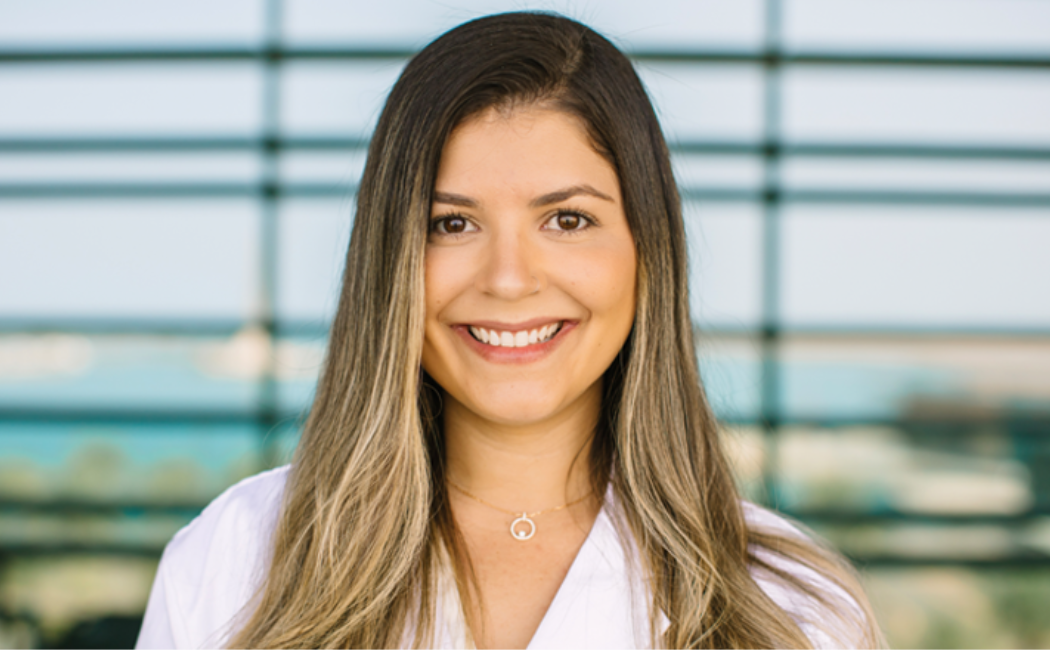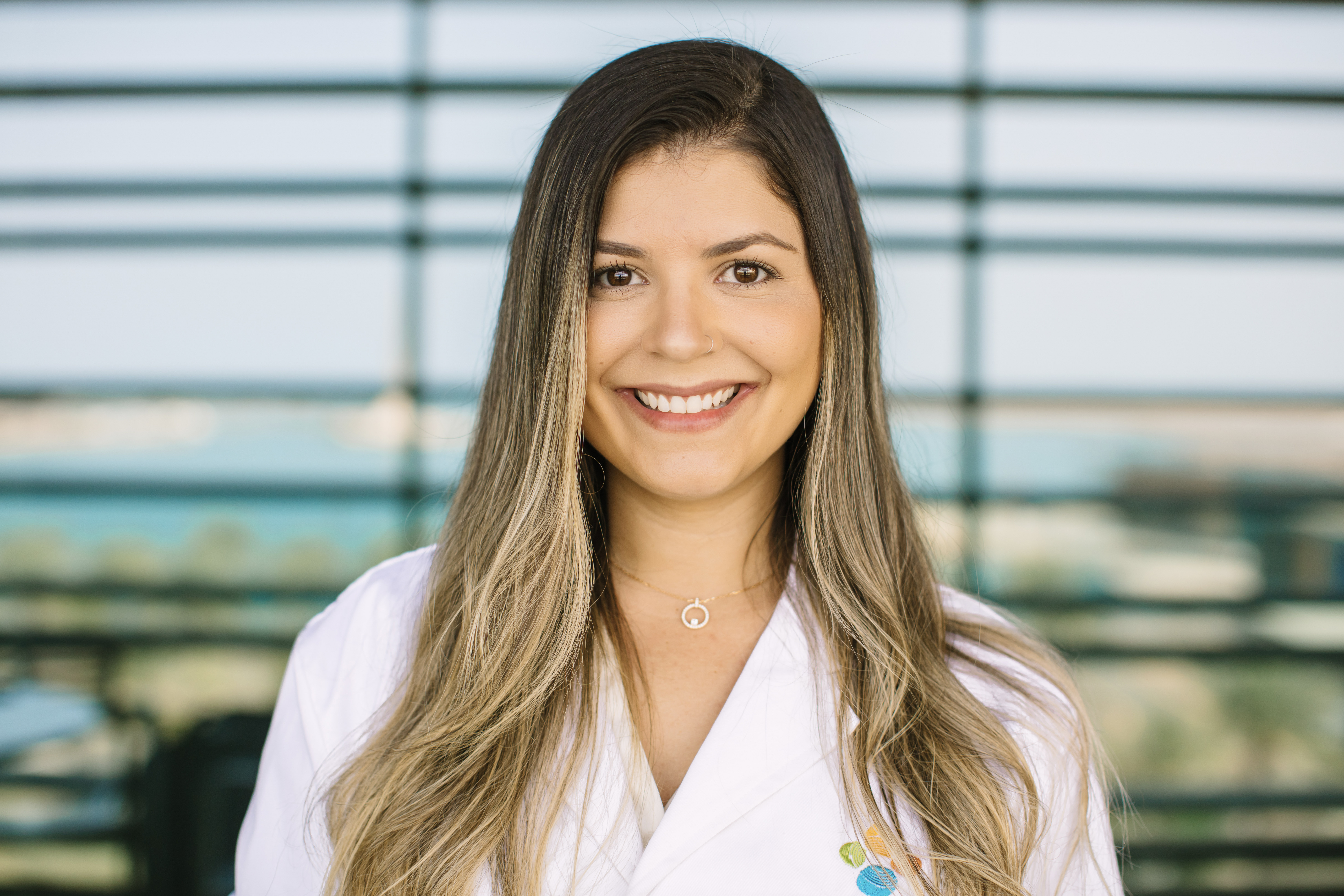


17 May, 2022

- By Jenny Griffin
Dr. Helena Villela is a research scientist in the Red Sea Research Center's Marine Microbiomes Lab, where she is working under the supervision of Professor Raquel Peixoto. Her primary research interests lie in investigating marine microbes that can be applied to the protection and recovery of the environment, mitigating the negative impacts of the human activities.
Helena became hooked on the ecological role of microbes and their potential for restoring natural environments damaged by human impacts very early in her academic life. "When I was an undergrad studying genetics at the Federal University of Rio de Janeiro, I took a course at the Institute of Microbiology at the same university," says Helena. "Prof. Alexandre Rosado (who is currently a PI in KAUST) gave me a lecture where he talked about microbial ecology, bioremediation, and Antarctica. That lecture changed my life. At the time, I was an intern in the Institute of Biophysics, working on a project that I did not find very exciting. It was a great project and I had wonderful supervisors, but it was just not a topic that I was passionate about," Helena explains. "When I heard about microbial ecology and how we can use microorganisms to mitigate environmental impacts, I knew I had found my calling. From that day on, all the projects I was involved with were, in some way or another, focused on the mitigation of impacts in natural environments.”
It is clear that Helena is passionate about microbes. "I like to say that microbes are the beginning, middle, and end of everything," she says. "They are the major primary producers in the ocean; key players in nutrient cycling, transformation, and degradation of compounds; and they are also the major decomposers. In the marine environment, microbes associate not only with corals but with all the other marine animals and plants, playing essential roles in their life cycles," Helena explains. "If we consider that microbes could live (and they actually did for a while) in a world where no other organism existed, but we (or corals) could never live in a world where there are no microbes, we might have a better understanding of their importance not only in the ocean, but everywhere."
Helena completed an undergraduate degree in Biological Sciences, majoring in genetics, at the Federal University of Rio de Janeiro, in Brazil. This was followed by a Master's degree in Biochemistry and Molecular Biology at the University of São Paulo, where she genetically engineered a species of microalgae to increase its oil content to produce biofuel. During this time Helena had the opportunity to join a month long research expedition to Antarctica, where she collected seaweed samples from many different sites around Antarctica for bioprospection purposes. She also spent some time as a visiting student in genetic engineering of microalgae at the Los Alamos National Laboratory, in New Mexico, USA.
After completing her Master's, Helena returned to the Federal University of Rio de Janeiro where she completed her PhD in coral microbiology and biotechnology with Prof. Raquel Peixoto at the Institute of Microbiology. During this time, she also completed a stint as a visiting PhD student at San Diego State University in California, USA. This was followed by a Post Doctoral position surveying the potential impacts caused by oil and gas exploration on marine holobionts (host-microbe interactions that play crucial roles in marine ecosystems) and the selection of potential bioindicators and bioremediation process, before joining KAUST's Marine Microbiomes Lab in 2021 as a research scientist under the supervision of her PI Prof. Raquel Peixoto.
During her PhD, Helena developed a strategy to mitigate the damage caused by oil contamination on a hydrocoral species, Millepora alcicornis (a species of fire coral), that is abundant and extremely relevant in Brazil. "We assembled a bacterial consortium that was able to degrade the oil and, therefore, protect the corals. We also accessed the effects of the dispersant Corexit 9500, which is a common oil remediation strategy used by oil industries, on marine environments," Helena explains. "The fire corals exposed to the dispersant died four days after the exposure, while all the corals exposed to the bacterial consortium remained healthy. We showed that it is possible to use alternative remediation methods that can degrade the spill, while at the same time, do not damage the local reefs."
"The capacity of microbes to degrade oil is not new. Bioremediation approaches have been used successfully for decades on land but not that much in marine environments," says Helena. "These techniques are even more attractive if we consider sensitive ecosystems such as mangroves and coral reefs, where chemical dispersants should never be used. It is known that chemical dispersants — one of the the primary techniques applied by oil companies in the event of a spill — are far more damaging to marine organisms than oil itself and should not be used close to these sensitive areas," Helena explains. "Our research* showed that a consortium of microbes (native to the reef environment) mitigated the impacts of the oil, substantially degrading its toxic compounds while maintaining the physiological integrity of the corals."
Helena also spent part of her PhD in California, working under the supervision of Prof. Forest Rohwer. Prof. Rohwer is an expert in coral microbiomes and environmental bacteriophages, which are viruses that infect bacteria and play an essential role in controlling and shaping their populations (including in marine environments). For Helena, this was the missing piece of the coral microbiome puzzle. "After spending time working with Prof. Rohwer, at the San Diego State University, I now have a more complete picture of how the bacterial populations fluctuate in marine environments and on the coral host itself," she says. "This topic opened up a whole new world of possibilities in my mind, and it is definitely an area that I want to keep investigating as a scientist."
Helena's current research is focused on coral-associated microbes that are beneficial to corals and which could potentially be used as coral probiotics — the so-called Beneficial Microorganisms for Corals (BMCs). "Corals are considered holobionts, which means that they are not one single organism, but the association of the coral animal host plus an assemblage of microorganisms that are crucial for its metabolism, health, and survival," says Helena. "To put it simply, we can separated coral-associated microorganisms into three different types of microbes: the beneficial ones (the ones that have clear roles on keeping the holobiont healthy, such as fighting pathogens or degrading toxic compounds); the commensal ones (which are, most of the time, living in harmony with the host and the other microorganisms); and the pathogens (the 'bad guys', the ones that cause disease if their populations are not under control). There are many nuances between these 'groups' (I wish it was this simple to identify and separate each one of them) but essentially BMCs are the ones that are (and will likely always be) 'the good guys', the ones that can protect or recover the coral host from different stress situations," explains Helena. "What we do is, find out who those 'good guys' are, isolate them in the lab (using traditional microbiology techniques), grow them, and inoculate them back onto the corals if and when they need some help — which is usually during heat stress events, or when they are exposed to toxic compounds such as oil, etc. The ultimate goal is to make corals stronger so that they can withstand the current threats they are exposed to — which are mainly caused by anthropogenic impacts — and to restore reefs that are completely or partially degraded," says Helena.
When asked what the future holds, Helena says she plans to continue in the research field, applying her knowledge and experience to keep fighting the effects of Climate Change on marine ecosystems. "At the moment, I am extremely happy working at KAUST together with the Marine Microbiomes' team under Raquel's supervision," says Helena. "Our team is like my second family, and I really enjoy the working environment here. KAUST is a special place that offers a quality of life that I have never experienced at any other campus in the world. That said, of course I plan to stay here for a little while, doing research and exploiting all the possibilities and potential that this place has to offer. Plus, I don't think I could ever live far from the Red Sea again… this place has really gotten to me! So, I hope my PI is fine with having me around for a while…," she adds with a wink and a smile.
* Silva, D.P., Villela, H.D.M., Santos, H.F. et al. Multi-domain probiotic consortium as an alternative to chemical remediation of oil spills at coral reefs and adjacent sites. Microbiome 9, 118 (2021). https://doi.org/10.1186/s40168-021-01041-w.